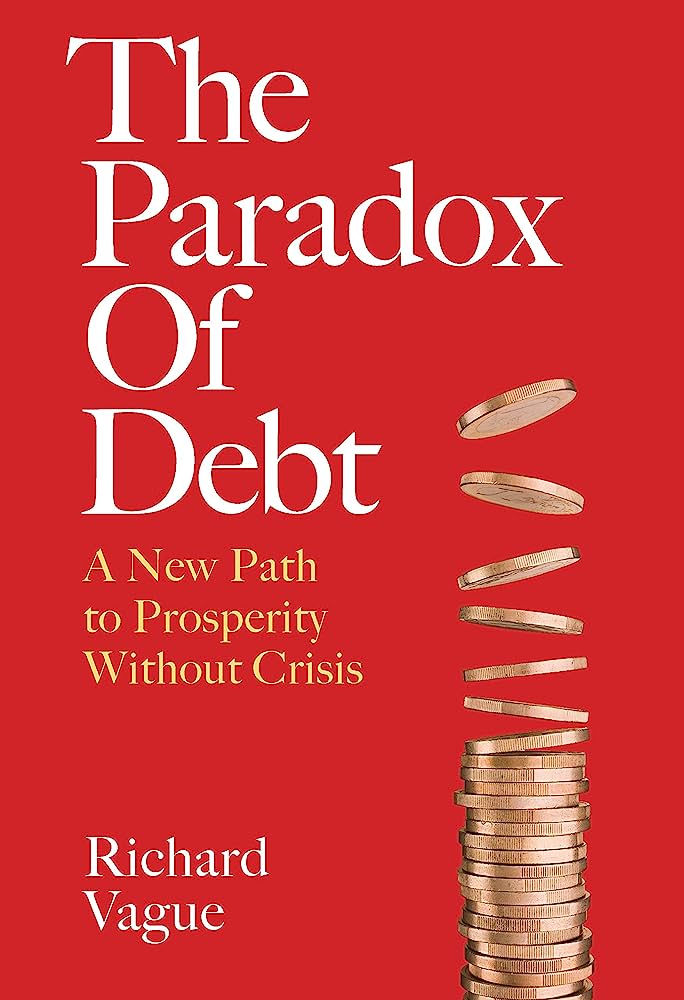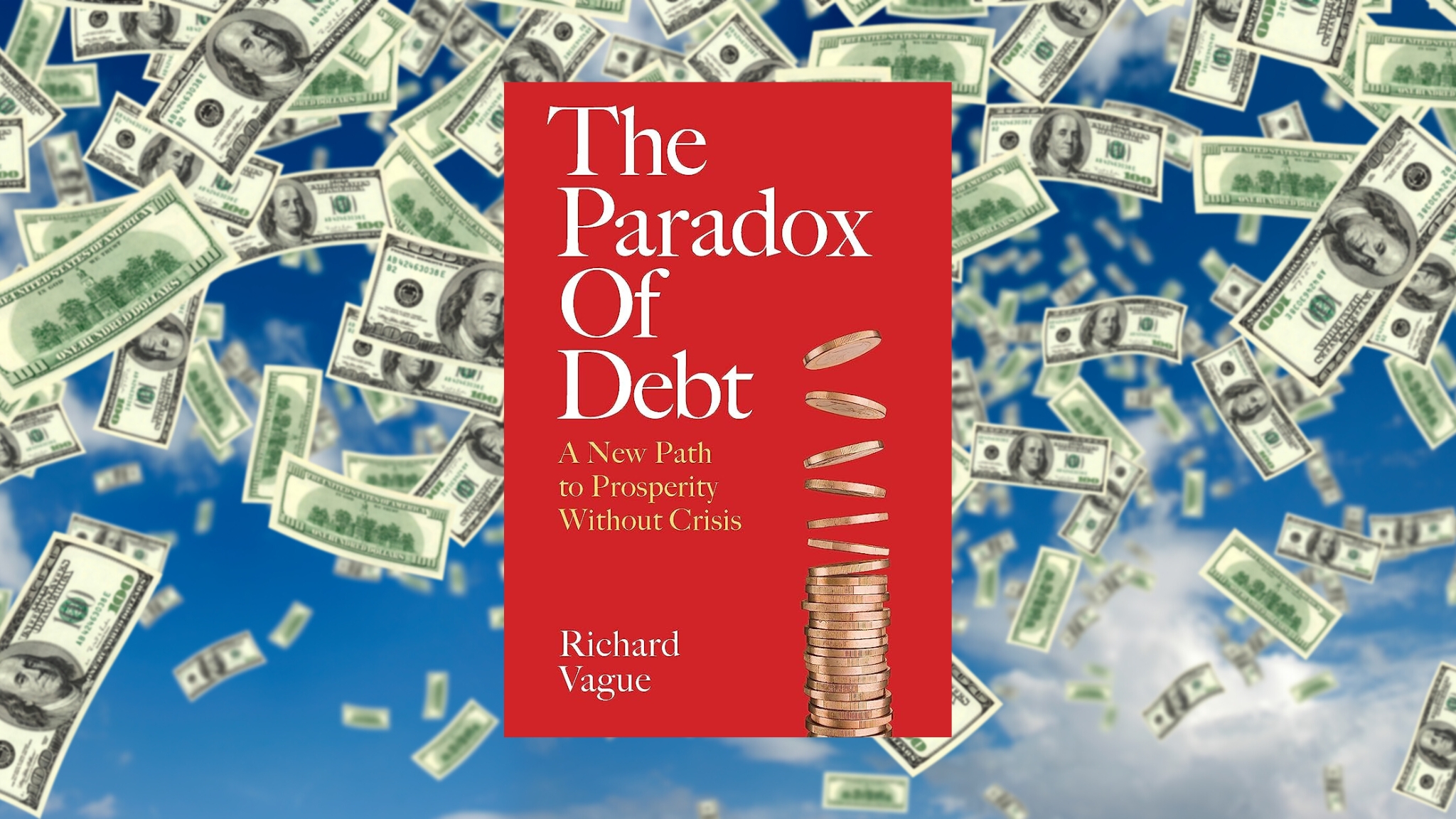The Paradox of Debt by Richard Vague
What’s it About?
Underpinned by pioneering data analysis and the author’s lifetime of experience in the financial world, this book is essential for anyone who wants to understand the deep, underlying dynamics of the American economy.
“Debt is a paradox. It creates and destroys. Even short of those extremes, it distorts.”
Hence the title of an enlightening and important new book The Paradox of Debt: A New Path to Prosperity Without Crisis (University of Pennsylvania Press) by economic expert Richard Vague, who has served since 2020 as Secretary of Banking and Securities for the Commonwealth of Pennsylvania.
In Paradox, Vague dissects the causes and consequences of debt and introduces a new discipline, debt economics, to help readers grasp the idea that debt, particularly private debt, is an overlooked but powerful economic force whose understanding will help manage economies better in the future.
In setting the table, Vague notes that when the country injected some $3 trillion to help rescue itself from the coronavirus pandemic, it also dramatically increased U.S. government debt, resulting in the largest drop in U.S. government wealth since the nation’s founding. Oddly, though, as government wealth tanked, household — or private — wealth skyrocketed to an almost incomprehensive $14.3 trillion. Talk about a paradox. How do you explain this?
“As we as a society come to better understand debt,” writes Vague, “it will become possible to more accurately forecast economic trends, predict financial crises, shape policy decisions, and understand how national wealth grows and thus how to address inequality.”
In the context of recovery from the pandemic as well as the war in Ukraine, the need to address new ways of thinking about debt, according to Vague, becomes all the more paramount.
Tackling Every Element of Debt
The Paradox of Debt provides ways we can monitor debt growth to prevent excess or remediate excessive debt that has accumulated. The author reviews how we can overcome growing trade deficits, phenomena that create higher private sector debt burdens, and design fair debt jubilee programs — programs that provide debt forgiveness and restructuring strategies.
Vague is a master communicator of intricate formulas and theories, writing in such a way as to reach everyone from C-suite executives, economists and financial experts to students of business and everyday people interested in the machinations of our economy and how it works. Don’t be scared off by his intricate charts, graphs and explanations — they all make perfect sense!
In fact, to strip complicated processes down to their bare bones, Vague creates a fictitious “LoanLand,” a hypothetical economy comprised of only 10 companies, each with the same earnings. Starting with that base, he is able to offer forth some of the basics on how the system functions, where debt comes from and how wealth is created on a level that can easily be processed.
The book tackles pretty much every element about debt that you ever imagined and many more beyond that: growth strategies, examining and comparing the wealth of seven nations, intense scrutiny of Covid’s effect on debt, and policy ideas for consideration, each of which, says Vague, would merit a book of its own. And while Vague does offer new ideas, he is quick to state that the paradox of debt is so “deeply imbedded into the structure of the economy of the U.S. and other Big 7 countries” that it will take more than just this book to resolve all the issues. If Vague’s suggestions spark new thinking, then that’s a start.
Open Eyes and Expand Minds
For those who have never thought so granularly about debt, this book will open eyes and expand minds. For those with a more intricate knowledge of the concept, Vague’s work will challenge common assumptions and offer plenty of food for thought.
Remember the paradox of debt: “Debt builds household net worth while also increasing inequality; it is essential for economic growth and yet, in excess, leads all but inevitably to periodic economic calamity and stagnation.”
“As a result, the paradox of debt portends the certainty of economic challenges and difficulties going forward, unless we are willing to get creative — and ambitious.”

As the author of A Brief History of Doom (2019) and The Next Economic Disaster (2014), Richard Vague established himself as a clear and independent voice in the ongoing conversation about the role of private sector debt in the global economy. His Illustrated Business History of the United States offers a more general audience a clear-eyed view of 250 years of wealth creation and the people and personalities who drove that growth — and hold it today. His more recent book The Case for a Debt Jubilee offers a compelling case and policy recommendations for new forms of consumer debt relief.
Following a career that has spanned fields as varied as banking and energy, credit, and the arts, Vague has served since 2020 as Secretary of Banking and Securities for the Commonwealth of Pennsylvania. He also serves on the University of Pennsylvania Board of Trustees and the Penn Medicine Board of Trustees, and on a number of business boards. He is chair of FringeArts Philadelphia, chair of the University of Pennsylvania Press, and chair of the Innovation Advisory Board of the Abramson Cancer Center. He also serves on the Governing Board of the Institute for New Economic Thinking.
Vague is the founder of the economic data service Tychos (tychosgroup.org) and the email newsletter service Delanceyplace.com, which focuses on nonfiction literature.

Publish Date: 7/11/2023
Genre: Nonfiction
Author: Richard Vague
Page Count: 304 pages
Publisher: University of Pennsylvania Press
ISBN: 9781512825329



























:quality(85):upscale()/2023/05/11/976/n/1922564/782262e2645d6b967847b4.74342194_.png)








